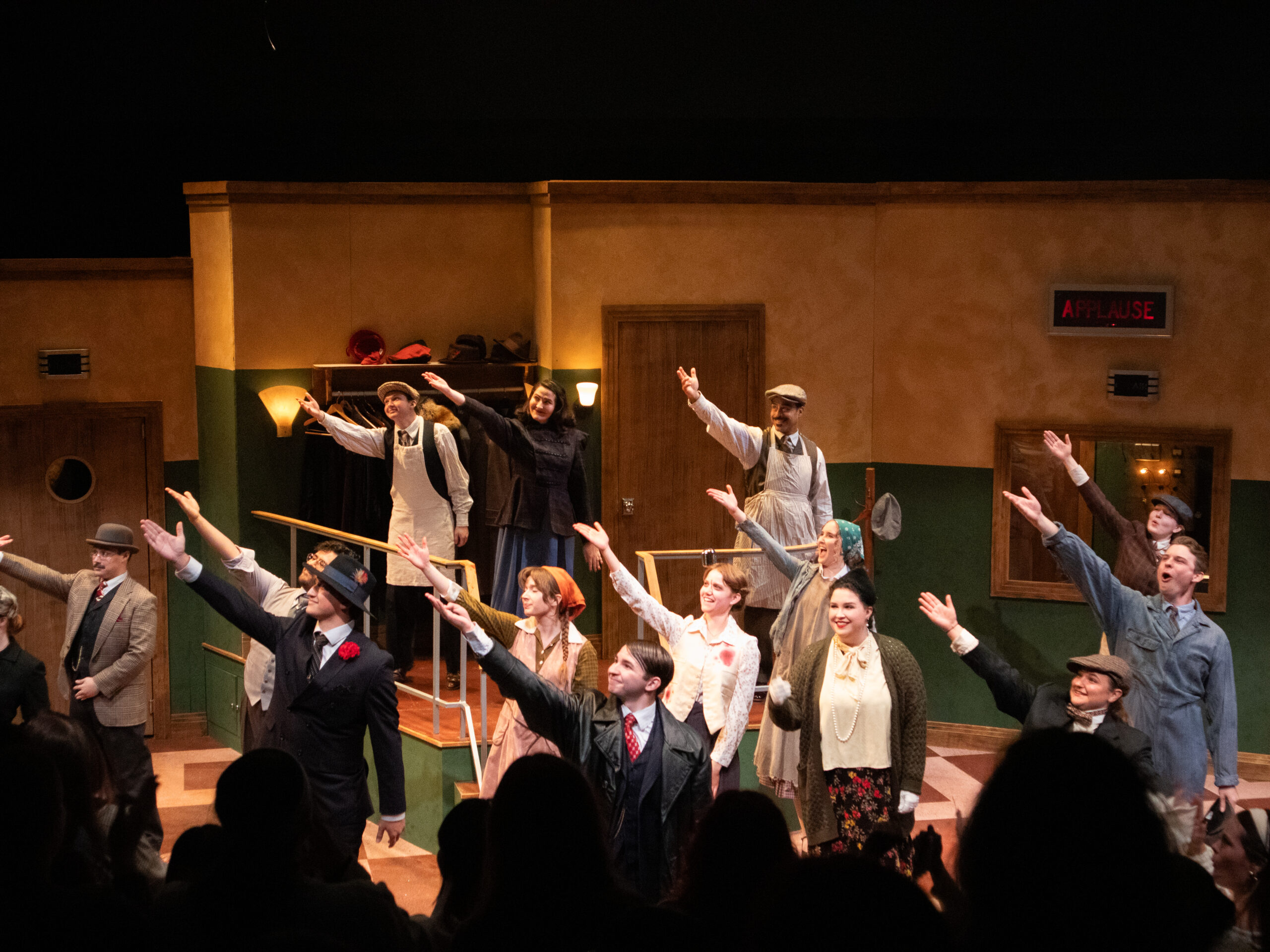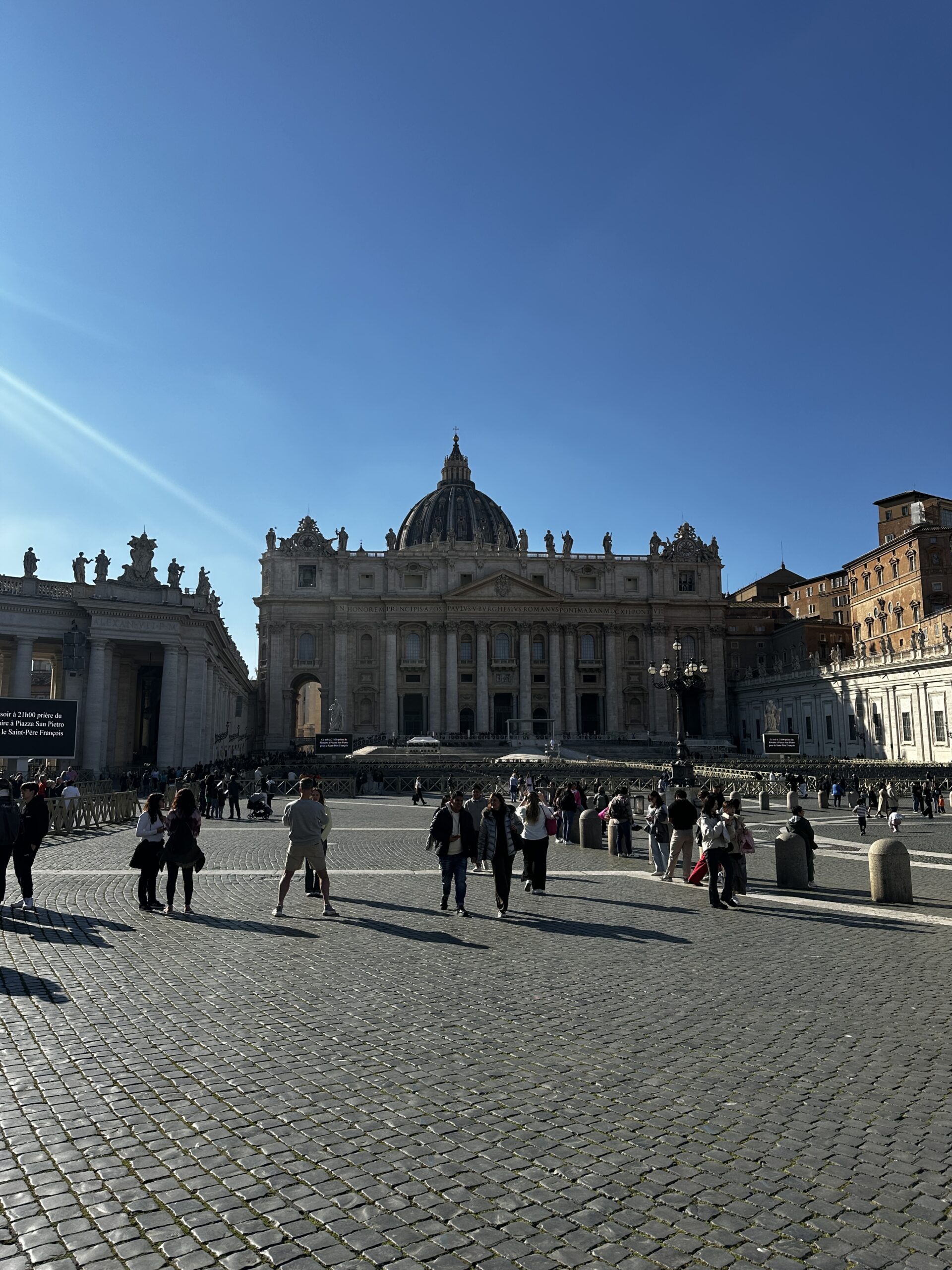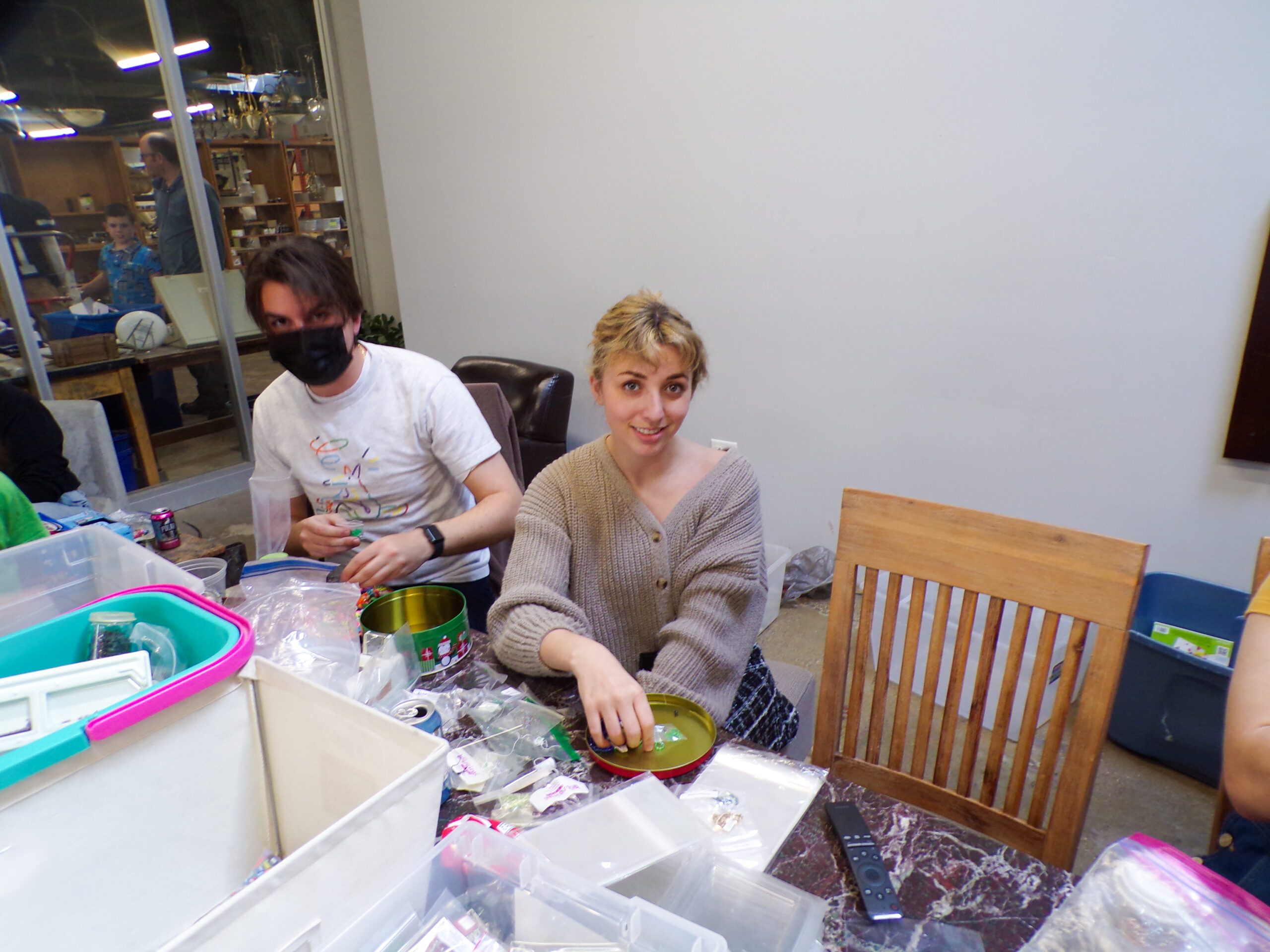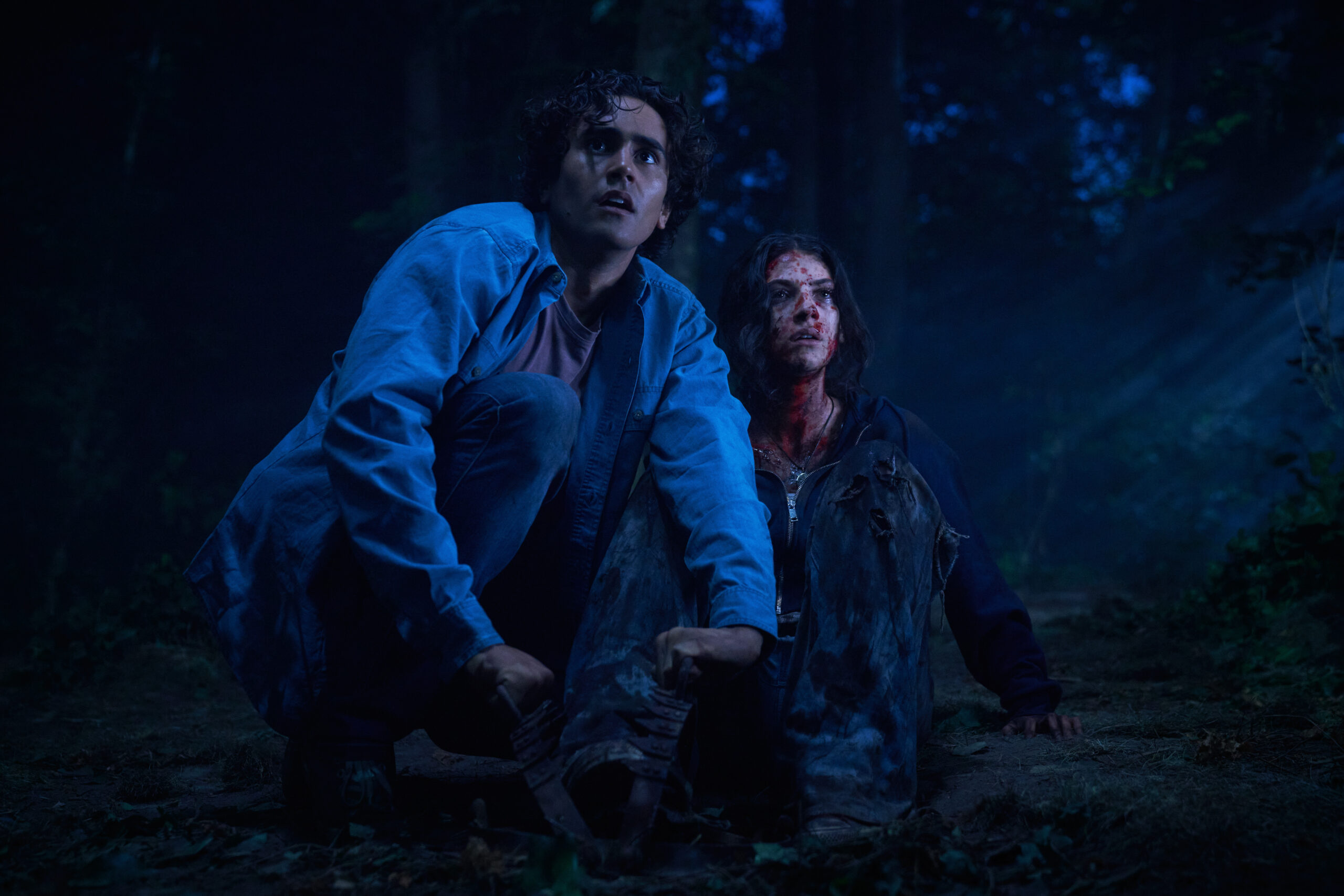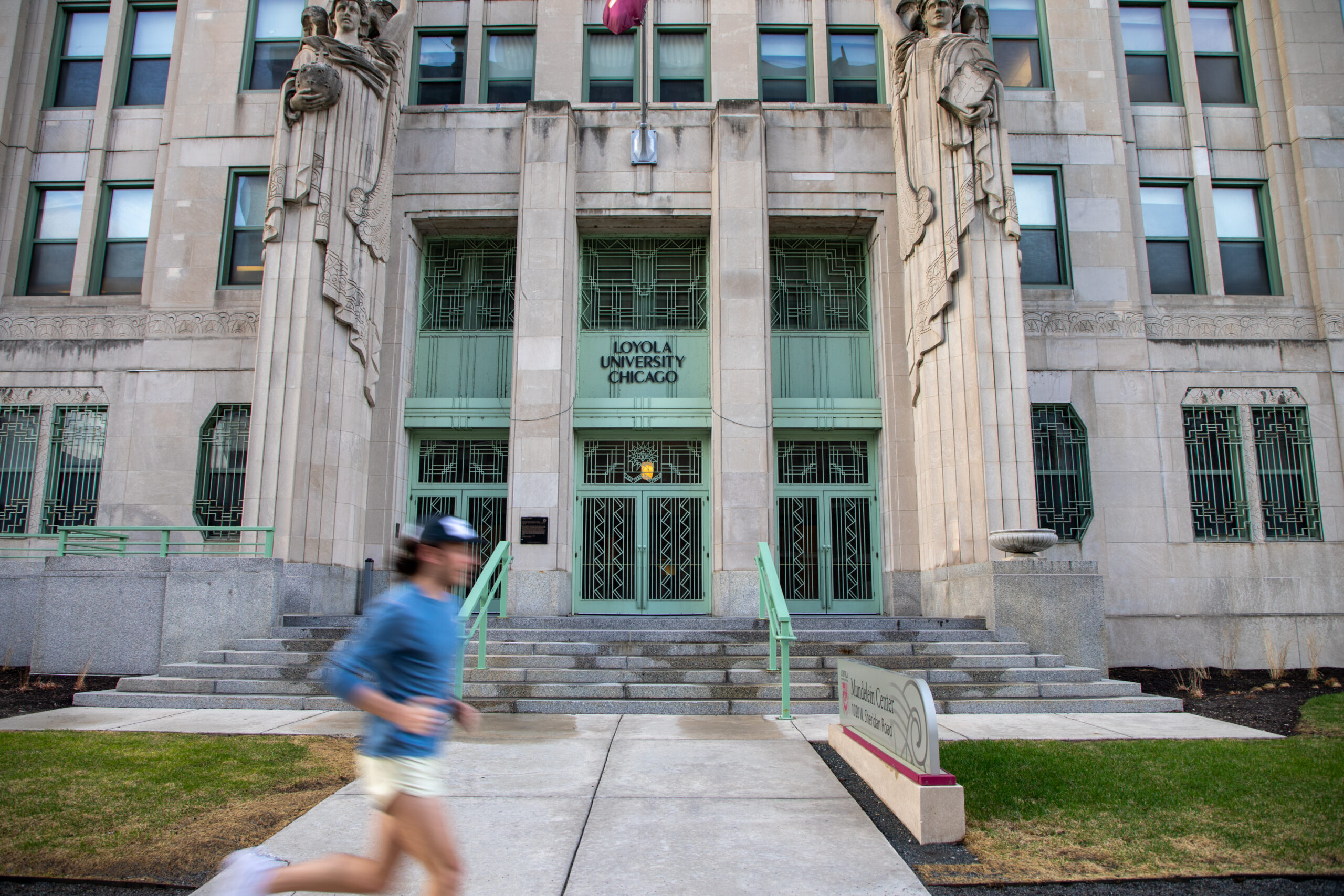The latest Loyola theater production follows a trail of corruption, crime and cauliflower.
Fear, violence, manipulation and cauliflower have one thing in common — fascism. At least, that’s the case in “The Resistible Rise of Arturo Ui,” the latest effort from Loyola’s Department of Fine and Performing Arts.
Written by German playwright Bertolt Brecht in 1941, the play is an allegorical retelling of Adolf Hitler’s rise to power and the events that took place within Nazi Germany.
The show stars junior theater major Dean Morgan as Arturo Ui, a Chicago mobster attempting to gain power over the cauliflower trade in Cicero, IL. Through blackmail, violent crimes and manipulation of the Cauliflower Trust, Ui and his crew of gangsters grow their agricultural influence.
From beginning to end, the audience watches the emergence of a corrupt, charismatic politician out of a simple, greedy mobster. Successfully controlling the cauliflower market by way of protection racketeering, Ui’s lust for power increases — eventually setting his sights on controlling the greater Chicago area.
While starting slow, Loyola’s production of “The Resistible Rise of Arturo Ui” gains momentum after building suspense and intrigue. The progressing pace is heightened by surprising moments of intensity, such as gunshot sound effects that bring viewers to the edge of their seats.
The play is overwhelming at times, especially considering the historical significance of the references being made. However, the comedic, witty sarcasm grounds the show in a way that makes it both digestible and entertaining.
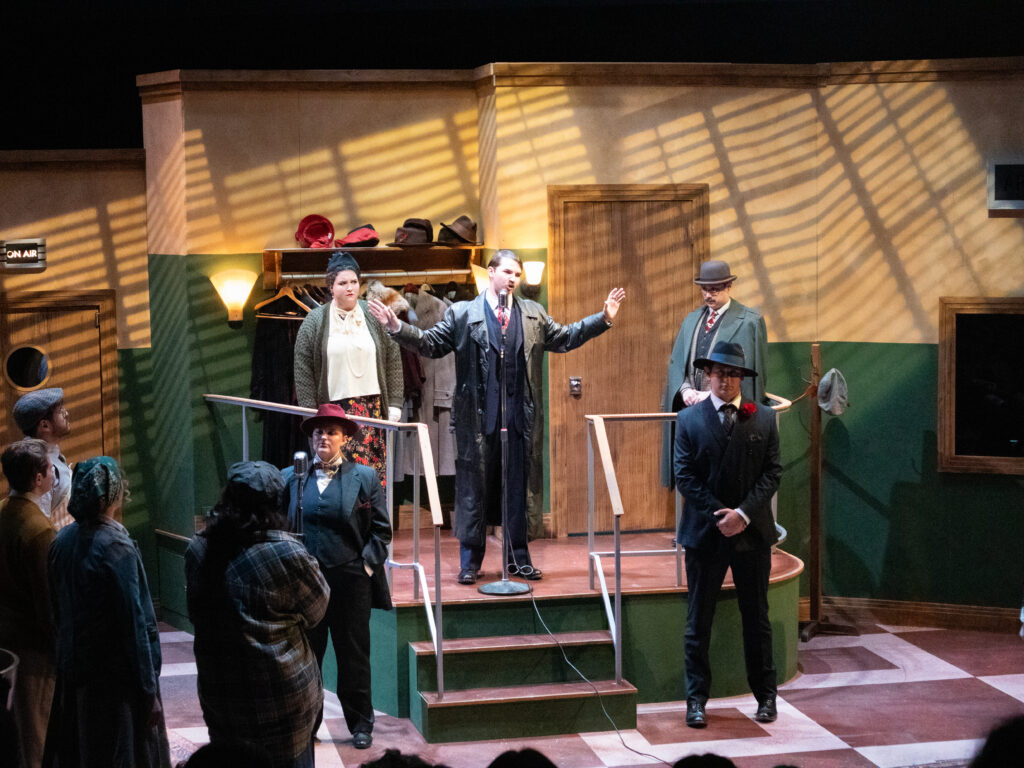
Intended for an American audience, “The Resistible Rise of Arturo Ui” is a timely play for the nation, with relevance to the presidential election taking place. The show is meant to emphasize how blind acceptance of authority is avoidable, according to the department’s program.
Director Mark Lococo explained how the relevance of “The Resistible Rise of Arturo Ui” is part of the reason the show was selected for production.
“A committee of students, staff and faculty chose this particular show last year at this time,” Lococo said. “They saw something in it that clearly coincided with our world.”
The play was also chosen for students to learn how to produce a work like Brecht’s, while fulfilling the writer’s goals in telling this cautionary tale.
“The Resistible Rise of Arturo Ui” is an example of epic theater — a style which disconnects the audience from characters’s emotions and the play itself, to encourage viewers to draw their own conclusions.
With epic theater in mind, Loyola’s production re-interpreted the play as a radio show, blurring the lines between real life and performance. The unclear settings and random song breaks further alienated the audience from a realistic portrayal of life.
Lococo said the framing was a challenge when creating the show.
“Brecht presents the work on two levels, or frames,” Lococo said. “The rise of Nazism and 1930s gangland Chicago. We’ve added a third – that of a hijacked radio broadcast in 1941.”
When it comes to student performances, junior philosophy major Molly Livesay’s portrayal of Ui’s right-hand man, Ernesto Roma, was attention-demanding. Whether it be because of her exquisite dialect or passionate delivery, Livesay’s performance is natural and believable.
Morgan’s work as Arturo Ui likewise captivates. A fierce actor, worthy of the role, Morgan carries his cast through the play without missing a beat. As an experienced MainStage actor, this comes as no surprise to loyal members of the audience.
After the play, audience member and third-year bioinformatics major Sneha Chowdhury detailed the show’s present importance.
“It had interesting commentary that I feel could really be applied to current events,” Chowdhurry said. “Like the upcoming election.”
Lococo said he was happy with the performance and accomplishments of the students.
“We’re very proud of this effort,” Lococo said. “Achieving our goal of creating theater that provokes and inspires.”
“The Resistible Rise of Arturo Ui” is playing in the Newhart Family Theatre Oct. 24 through Nov 3. Tickets to the show can be purchased on Loyola’s Fine and Performing Arts website.

